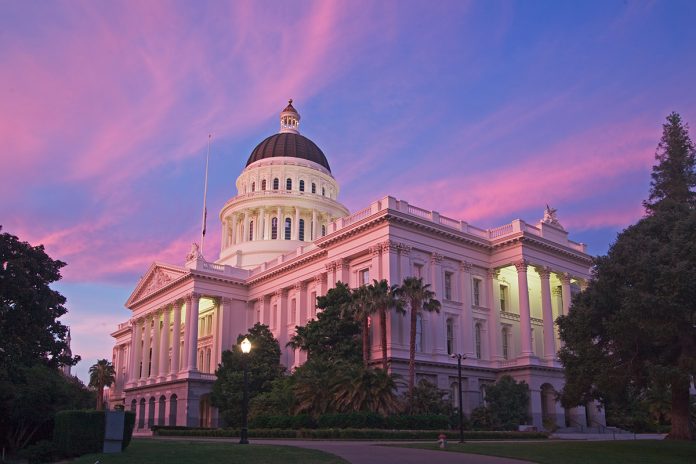SACRAMENTO – California Governor Gavin Newsom on Friday released the state’s proposed budget for 2020–2021, including provisions that would consolidate three state agencies currently regulating the cannabis industry, in hopes of simplifying procedure for officials and industry operators.
“In an effort to improve access to licensing and simplify regulatory oversight of commercial cannabis activity, the Administration plans to consolidate the three licensing entities into a single Department of Cannabis Control by July 2021,” the budget report stated.
Since 2015, three state entities—the Bureau of Cannabis Control under the Department of Consumer Affairs, CalCannabis under the Department of Food and Agriculture, and the Manufactured Cannabis Safety Branch under the Department of Public Health—have overseen industry licensing and regulatory control.
The new budget would create a single agency, “establishing a stand-alone department with dedicated enforcement will centralize and align critical regulatory functions to build a successful legal cannabis market, and create a single point of contact for cannabis licensees and local governments.” The new entity will be called the Department of Cannabis Control.
Changes in the way retail excise taxes are paid have also been added to the proposed budget items. Under the current scheme, distributors are the collection point for retail excise taxes; with the new proposal, retailers would be responsible for collecting taxes.
“The Administration, in consultation with the industry and stakeholders, will consider other changes to the existing cannabis tax structure, including the number of taxes and tax rates to simplify the system and to support a stronger, safer legal cannabis market,” stated the budget report.
Allocation of revenue from the state’s Cannabis Tax Fund has also been updated in the new budget.
The report estimated, “$332.8 million will be available for these purposes in 2020–21,” which include:
- Education, prevention, and treatment of youth substance use disorders and school retention—60 percent ($199.7 million).
- Clean-up, remediation, and enforcement of environmental impacts created by illegal cannabis cultivation—20 percent ($66.6 million).
- Public safety-related activities—20 percent ($66.6 million).”
The budget report also said “the cannabis excise tax is forecast to generate $479 million in 2019–20, and $550 million in 2020–21.” Estimates are based on continued industry growth of fifteen percent annually, as more legal businesses become established.
Cannabis industry members will have to wait until spring, when more details of the proposed changes will be revealed.
“Since legalization, the California cannabis industry and its consumers have struggled to navigate an increasingly complex regulatory landscape—a situation that contributed to the growth of the illicit market and the current accessibility of untested products, as well as an increased cost of compliance to license holders,” said Jarred Kiloh, board president of trade association United Cannabis Business Association (UCBA).










